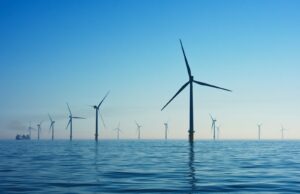Scientists have invented a process to break down single-use plastics into fuel, potentially closing the carbon cycle and tackling waste.
An international team led by a USA Department of Energy laboratory has discovered a new method to break down persistent plastics, recovering useful raw materials from face masks, shopping bags and clingfilm.
Recycling plastics typically requires high temperatures to ‘crack’ or split stable chemical bonds, making it an expensive and energy intensive process.
Scientists found that combining this with a second reaction step, involving alkylation catalysts, completes the conversion into a gasoline-like fuel which can be done in near room temperatures.
‘Cracking just to break the bonds results in them forming another one in an uncontrolled way, and that’s a problem in other approaches,’ said Oliver Y. Gutiérrez, a study author and chemist at the Department of Energy’s Pacific Northwest National Laboratory. ‘The secret formula here is that when you break a bond in our system, you immediately make another one in a targeted way that gives you the end product you want. That is also the secret that enables this conversion at low temperature.’
The team, co-led by the Technical University of Munich, investigated recent, separate developments by the petroleum industry to commercialise this process for crude oil processing.
‘The fact that industry has successfully deployed these emerging alkylation catalysts demonstrates their stable, robust nature,’ said Johannes Lercher, a senior author of the study, director of PNNL’s Institute for Integrated Catalysis, and professor of chemistry at TUM. ‘This study points to a practical new solution to close the carbon cycle for waste plastic that is closer to implementation than many others being proposed.’
Petroleum releases CO2 emissions when burned and is harmful to the environment when used to power cars and industry.
Photo by Melanie Hess-Robinson | Pacific Northwest National Laboratory
















